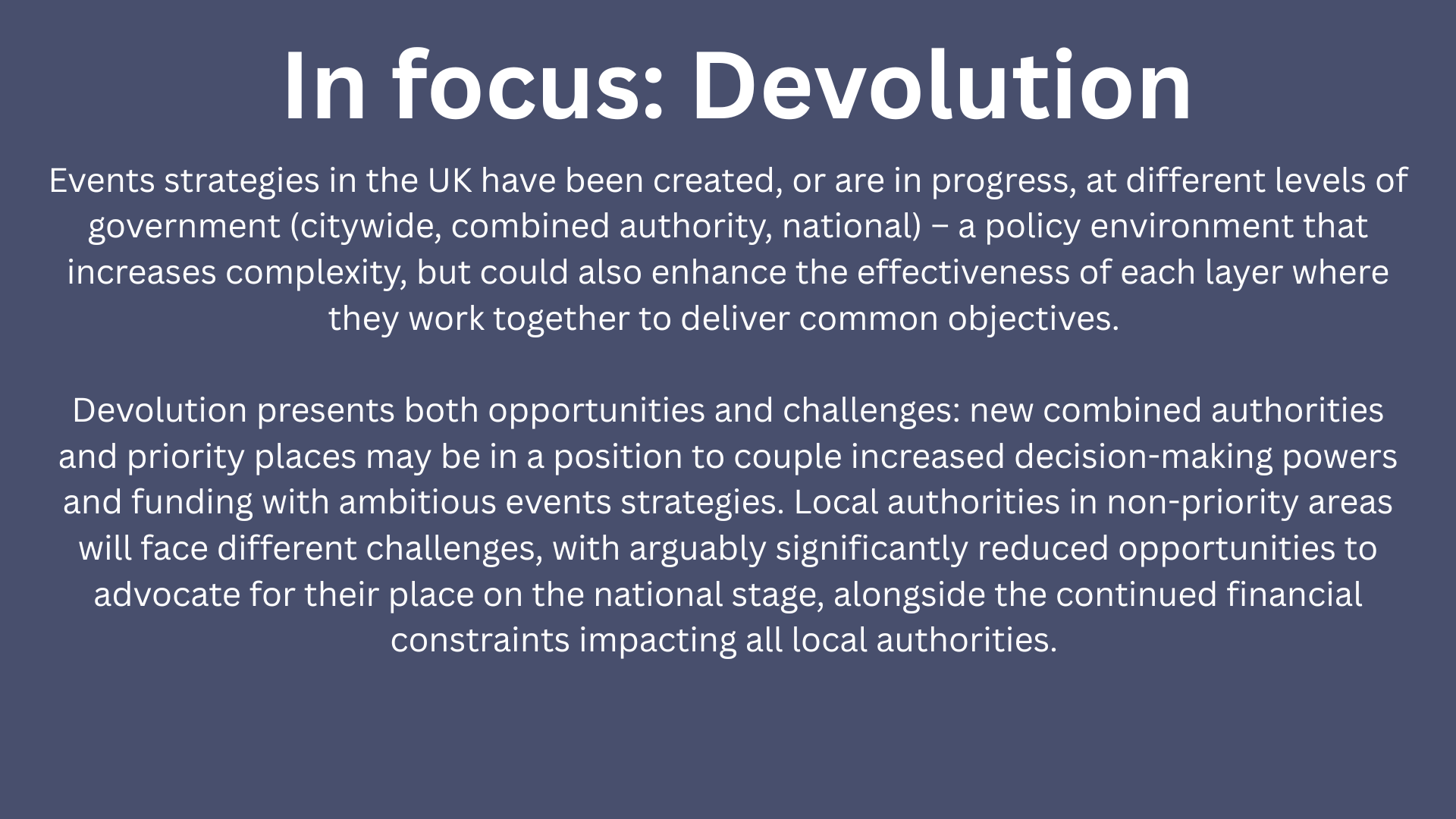Why does an Events Strategy matter?
Events have the power to shape the identity of a place, boost the local economy and bring communities closer together. From major international events to small local arts festivals, they can drive innovation, build partnerships and even lead to measurable improvements in health, culture and the local environment. But if we only look at events one at a time, we miss out on bigger opportunities. An events strategy helps connect the dots, ensuring every event supports a bigger vision for a city or region. Developing an event strategy is a key part of making the most of the impact that events can deliver, clarifying a place’s objectives and ensuring each event they host aligns with a broader ambition.
How Events Strategies work
Collaborating for better events
Creating a successful events strategy takes teamwork. Businesses, tourism, local government, and communities all need to work together toward shared goals. A good strategy focuses on two types of events: Brought-in Events, which are competitively secured events like major festivals or sports events and Local Events, which are home-grown events that reflect the community.
Why strategy matters
Event organisers alone can’t provide everything needed to succeed, like transport, hotels, or local job opportunities. A solid strategy ensures these elements work together to benefit everyone. It lets each event specialize while the bigger picture stays on track.
Connecting to broader plans to secure funding and support
An events strategy should link with national and regional plans for funding and support. It should sit alongside the strategies of those responsible for the designation and funding of events, including DCMS, Arts Council England, UK Sport, other National Lottery distributors, devolved administrations and their agencies (EventScotland, Events Wales, Tourism Northern Ireland etc.), as well as local authorities and Local Enterprise Partnerships.









